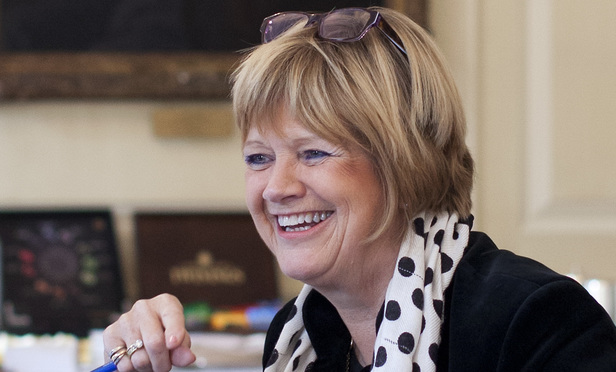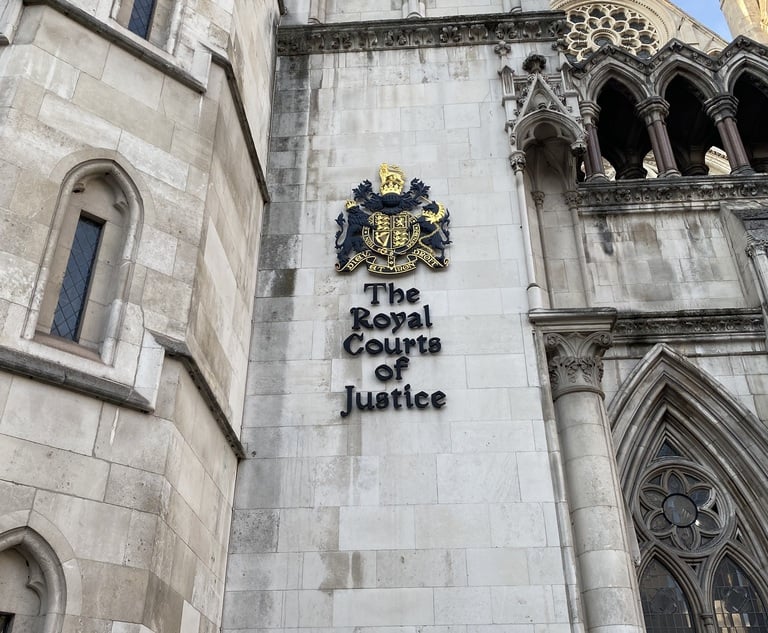This Sunday (27 November), Lady Justice Hallett will appear on stage alongside four QCs and a cast of professional actors including Tom Conti, Lee Mack and Meera Syal in the Shakespeare Schools Festival production of the Trial of Hamlet.
Educated at grammar school before going on to Oxford University, she was called to the Bar in 1972 and became the first female chair of the Bar Council in 1998. She went on to be appointed as a High Court Judge in 1999, a Court of Appeal judge in 2005, and was chosen to serve as coroner in the 7/7 bombing inquest in 2009.
Here she discusses her career, her desire to boost diversity at the Bar and her love of Shakespeare.
Why are you getting involved in this production? “I love the law and I love the theatre, and I believe in teaching school children of all ages about the law and its role in their lives. This production gives them a chance to see how the law operates, how important it is to them and their families and may, hopefully, interest them in a career in the law. Putting Hamlet on trial for murder is also a good reminder that, whatever your position in life, you can be brought to account for actions.”
How big a problem do you think social mobility is within the legal profession today? “One of the problems I faced at school, and some still face, is a lower level of aspiration. Sometimes children (or the adults around them) think that becoming a barrister or solicitor can’t be for them, but I want them to realise that it can be. It takes a huge amount of determination and it can be very expensive but, if we use the resources available to us appropriately, we should be able to remove the obstacle of costs at least for some. We have to instil in children from all backgrounds the confidence to see a career in the law as a possibility.”
What has been your experience of sexism at the Bar? “I have never said the Bar and or the law generally were any worse than any other part of society – the legal profession when I qualified reflected society at the time, and the attitudes in society as a whole were not great then. Things have improved. They are not perfect; we still see pockets of overt discrimination but we are doing our best to tackle them. What may be an even harder problem to tackle now is the unconscious bias that is in us all.
“For women, things will only truly change when we see women at every level – including the very top – and in a critical mass in the professions, in business and in politics.”
What does it take to succeed at the Bar? “The practice of law is a competitive world and that’s not going to change. You have to be very good, determined and tough. There are still obstacles but they are fewer than they were and the profession as a whole (including the judiciary) is doing a lot of work to reduce them further. In my time there has been a significant improvement in social mobility, the gender balance and the representation of black and minority ethnic lawyers in the profession.”
Do you think having a female prime minister will help? “Equality of opportunity is about social justice, to which our new prime minister has committed her government. It is good to have a female prime minister but I don’t want to see a female prime minister every 20-30 years – I want it to be the norm.”
What efforts have been made to increase the number of women in the Judiciary? “We have introduced more flexible ways of working – for example, part-time working that may suit those with caring responsibilities – and we have a job-share in the High Court for the first time ever. We hold outreach events all over the country and we are providing support programmes, mentoring, work shadowing and applications workshops to encourage an interest in the bench and to help all those from under-represented groups make it to the bench.”
Is the Bar more elitist than any other profession? “I am not sure what the evidence is for this idea. If this is a reference to the number of judges who went to Oxbridge, then having fought hard to get to Oxford from a state school, I am not ashamed of my education. That is not to say that those who select lawyers should not be on their guard against any tendency to think there are only two universities out there.”
Would you still recommend the Bar as a career? “I would thoroughly recommend the Bar as a career – it is a challenging and fulfilling career with a huge range of options, be it private practice, employed practice, in business, and in the government service. I have never, ever regretted becoming a barrister. The law and the legal profession have faced challenges but with the will, commitment and with the necessary investment we can get through the difficulties and maintain the excellent system of which we are so proud.”
What advice do you have for those seeking a career at the Bar? “Find a work experience placement or mini-pupillage and visit your local courts and/or tribunals. We do most of our work in public, so you can get a feel for what we do. Gain as much knowledge and experience as you can about the Bar and try to find something slightly different to put on your CV and mark you out.”
What about advice specifically for women? “Never give up. When we hold our outreach events to attract women and people from more socially disadvantaged backgrounds, we have a panel of judges who tell our stories and where we have come from. The refrain from the women judges is frequently the same: we have been told we cannot do something and refused to accept it. We became all the more determined to do it.”
What’s your proudest professional moment? “Becoming a QC with my mother and father present.”
And worst day on the job? “Seeing one client, a young mother, convicted of starving her baby to death.”
What has been your most memorable case? “The 7/7 inquest. It was the most extraordinarily moving and rewarding experience. If I took one thing from it, it is courage. The courage of all those involved: the rescuers, the bereaved families and the desperately injured survivors. They were amazing people.”
Who’s been the biggest influence on your career? “My parents – they brought me up to believe I could do anything a man could do. HHJ Michael Parker QC gave me a place in Chambers and took a chance on me.”
What most annoys you about the legal profession? “What annoys me most is the pressure from some quarters to turn the profession into a trade. Law isn’t about buying and selling legal services, it is about commitment to justice, the rule of law and service to the public. Some see us like grocers selling cans of beans. We are not. Lawyers should be professionals with a duty to the court and to justice, as well as to their client and with an understandable desire to make a decent living.
“If you undermine the practice of law as a profession, you risk undermining the integrity of the legal system and the rule of law in this country.”
Who is your least favourite Shakespeare character? “Othello – he killed his wife because he thought she was having an affair. He put his own pride and honour above her life. I have never liked him.”
What will children learn from watching The Trial of Hamlet? “The play is a great way to combine the law and the stage: to entertain, to inform and to get people interested. The children taking part are developing the ability to communicate, to work as a team and to understand people better– all skills that will serve them well.”
Do you think female role models are important to drive diversity in the legal profession? “We need a critical mass of women at every level of the judiciary. We have to appoint women for the right reasons though: on merit. Most women in senior positions don’t necessarily see themselves as role models, but they are. That is how we can spread the message.”
How did you manage to combine family with the Bar? “A friend of mine had triplets, twins and a solo under the age of five. My life with two children was easy compared to hers, although it didn’t seem it at the time.”
The Trial of Hamlet, in which Hamlet faces a life behind bars for the murder of Polonius, is playing at London’s Wyndham’s Theatre on Sunday 27 November. Tickets are available for sale here.
NOT FOR REPRINT
© 2024 ALM Global, LLC, All Rights Reserved. Request academic re-use from www.copyright.com. All other uses, submit a request to [email protected]. For more information visit Asset & Logo Licensing.
NOT FOR REPRINT
© 2024 ALM Global, LLC, All Rights Reserved. Request academic re-use from www.copyright.com. All other uses, submit a request to [email protected]. For more information visit Asset & Logo Licensing.
NOT FOR REPRINT
© 2024 ALM Global, LLC, All Rights Reserved. Request academic re-use from www.copyright.com. All other uses, submit a request to [email protected]. For more information visit Asset & Logo Licensing.
NOT FOR REPRINT
© 2024 ALM Global, LLC, All Rights Reserved. Request academic re-use from www.copyright.com. All other uses, submit a request to [email protected]. For more information visit Asset & Logo Licensing.











